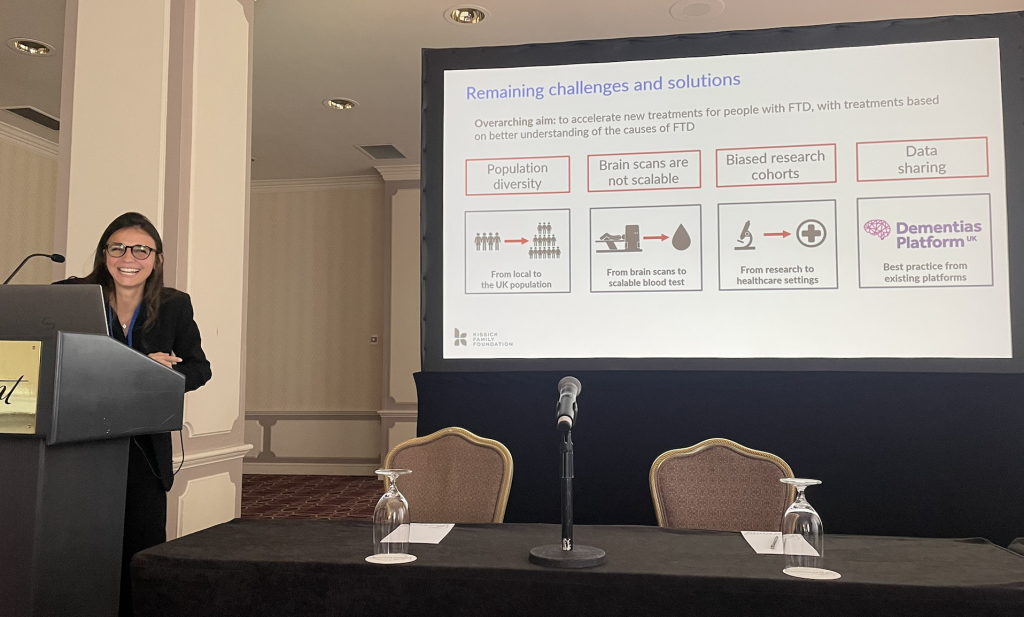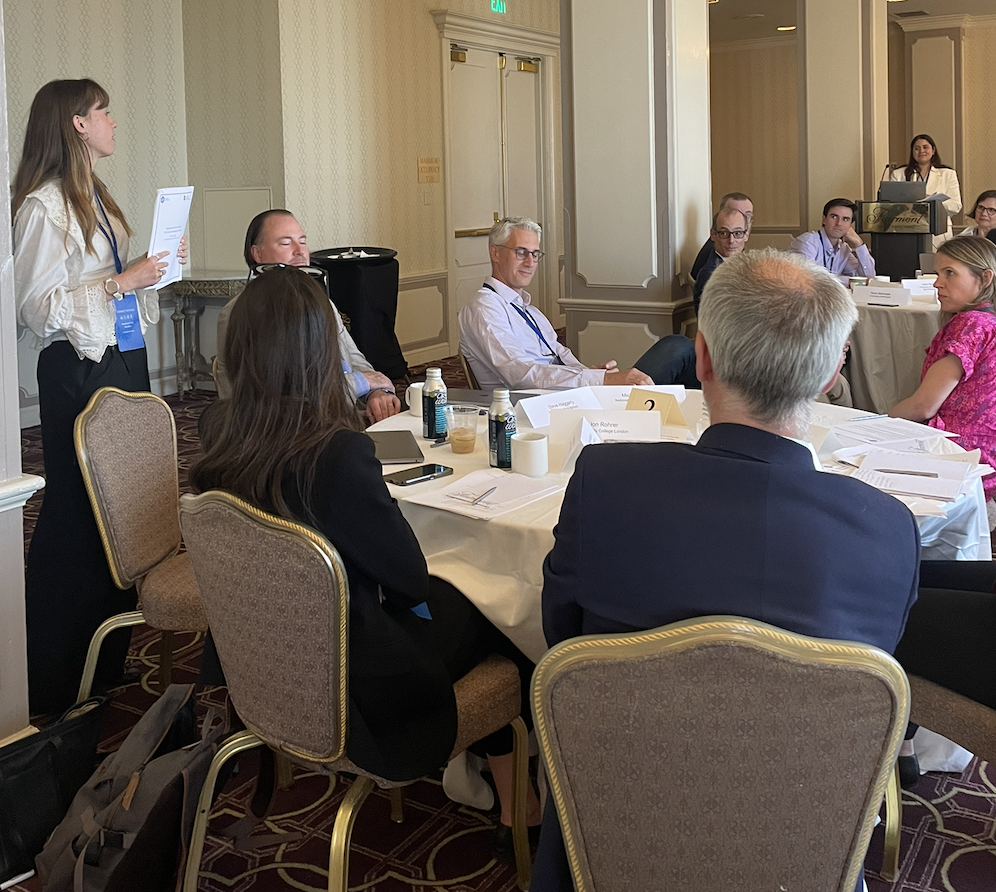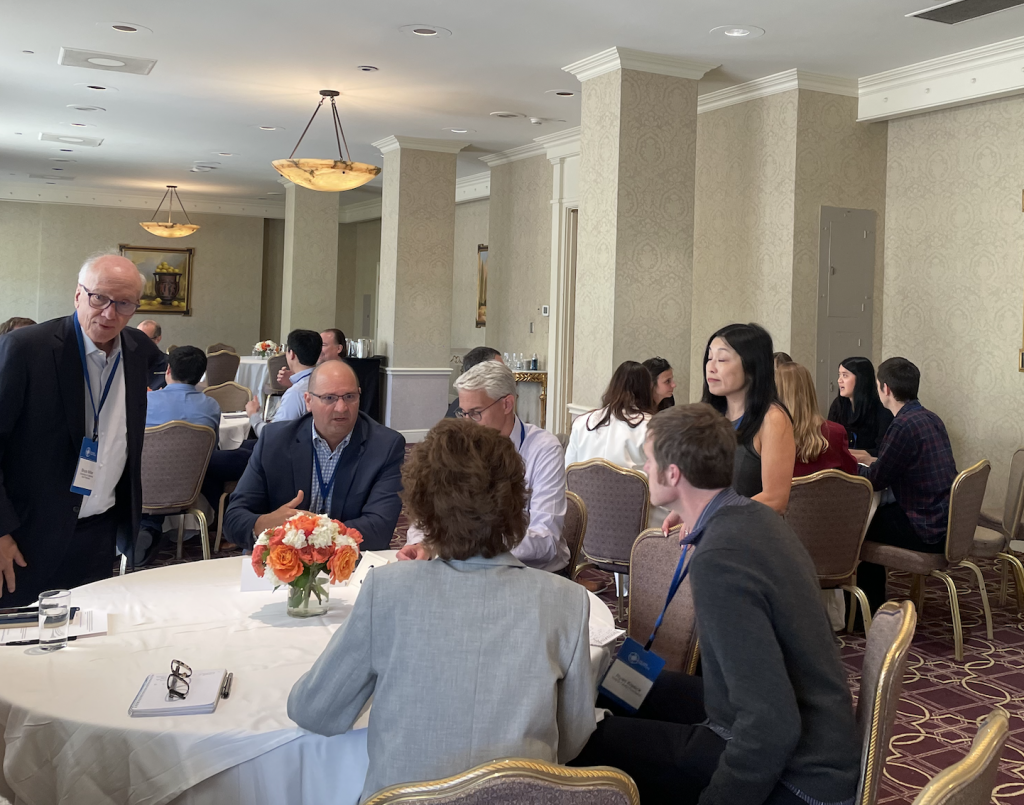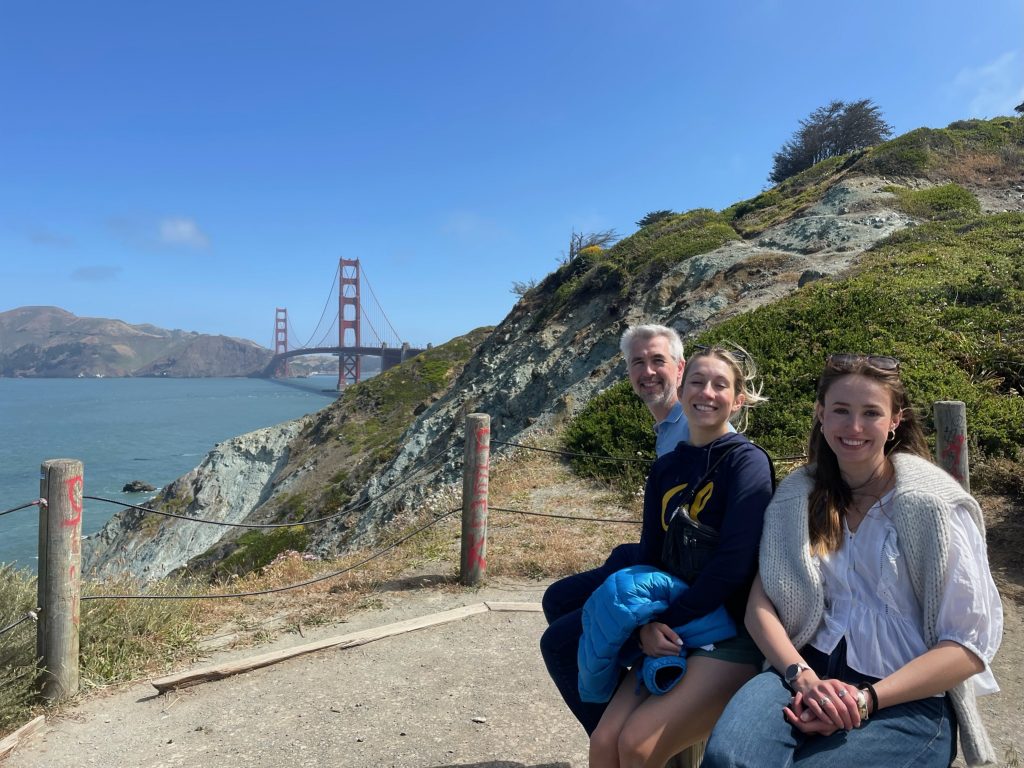Last week, Jon, Sophie and Amelia travelled to San Francisco to attend the Kissick Foundation Investigators Meeting, hosted by the Milken Institute. The meeting brought together researchers, clinicians, and early-career scientists working across the spectrum of Frontotemporal Dementia (FTD), supported by the Kissick Family Foundation.
Goals of the meeting

The main goals of the meeting were to strengthen the FTD research community, share current challenges and insights, and create a collaborative space for investigators to present their unpublished, early-stage findings. These presentations allowed for discussions, valuable feedback, and suggestions that could help shape the direction of both clinically focused and lab-based research projects — including our research studies focused on the early detection of familial FTD.
A key aim was also to spark new collaborations and brainstorm around the barriers and under-explored areas in the FTD field. This forward-thinking approach is vital in encouraging innovation and sustaining momentum in our shared mission to better understand and treat FTD.
A lovely start to the event
The meeting kicked off with a welcome reception and dinner — a relaxed and enjoyable way to connect with other attendees. Despite the jet lag, our team enjoyed the opportunity to meet fellow researchers and learn about their work in an informal setting.
The next morning began with a breakfast meeting, followed by a powerful welcome from the Kissick family, who shared their personal experience navigating FTD. Their story was deeply moving and reminded us of the importance and urgency behind the science.

Following the opening, each investigator gave a short presentation outlining their current research and its broader significance to the FTD community. Highlights included an update on our research, including our work with Rapid MRI scans by Jon and ON FIRE (Open Network for Frontotemporal dementia Inflammation Research) by Maura Malpetti. Non-clinical projects were focused on understanding the underlying mechanisms in familial and sporadic FTD to help pave the way for improved diagnosis and treatment.
Later in the day, small group “snapshot” sessions allowed meeting attendees to rotate through various focus tables, engage in deeper conversations, and offer feedback to researchers from different backgrounds. These interactive sessions were a highlight — not only did they prompt insightful discussions, but they also opened the door to cross-disciplinary collaboration and fresh perspectives on our own work.


A great end to the meeting
The meeting concluded with a dinner filled with continued scientific discussion, and the first steps toward future collaborative efforts across labs and institutions in the United States of America and the United Kingdom.
A lovely surprise during our trip was getting to meet Eva, one of our research assistants, in her hometown of San Francisco. A walk by the Golden Gate Bridge was the perfect way to end a productive and inspiring few days before heading back to London — energised and full of new ideas to bring into our research.


